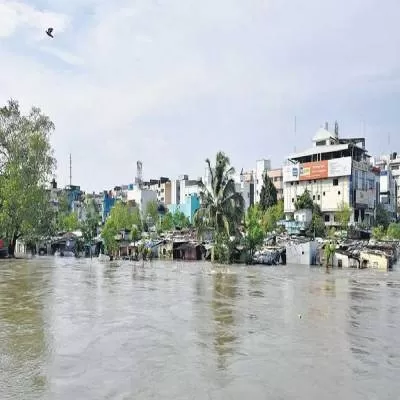

Following the floods in December that submerged buildings situated along flood channels, the Chennai Metropolitan Development Authority (CMDA) is contemplating the mandatory submission of drainage plans for obtaining planning permission for buildings.
The CMDA has initiated the integration of Geographic Information System (GIS) data from 21 departments issuing No Objection Certificates (NOC) into its land use map. Upon form submission, the portal's software will automatically showcase the relevant departments requiring NOCs.
In cases where a site is in proximity to a water body, the portal will prompt the applicant to submit a drainage plan, ensuring proper water flow into the water body. This plan must be procured from a hydrologist and submitted alongside other necessary documents, as per a CMDA official.
The CMDA had introduced a single-window online planning permission application system in May 2022, integrating the portal with urban and rural local bodies, including the Greater Chennai Corporation (GCC). Recently, 114 approvals were granted within 30 days of application. Despite an average of 65 planning permissions for high-rise buildings (HRB) annually, the online portal received 135 applications last year, with 100 successfully cleared. In the non-HRB category, 641 applications were received in 2022, resulting in 455 permissions. In 2023, out of 837 applications, 605 were approved.
Builders express concerns about delays in HRB approvals from the housing department, citing approximately 35 pending proposals and difficulties in uploading plans on the portal. A developer emphasises that a more efficient approval process is possible with adequate staff availability.
K P Subramanian, a retired professor of urban engineering at Anna University, suggests that mapping vulnerable areas and incorporating them into the CMDA's land use map during the planning permission process would automatically reject sites close to water bodies. However, he emphasises the need for accountability and proposes random checks to ensure compliance and prevent deviations.